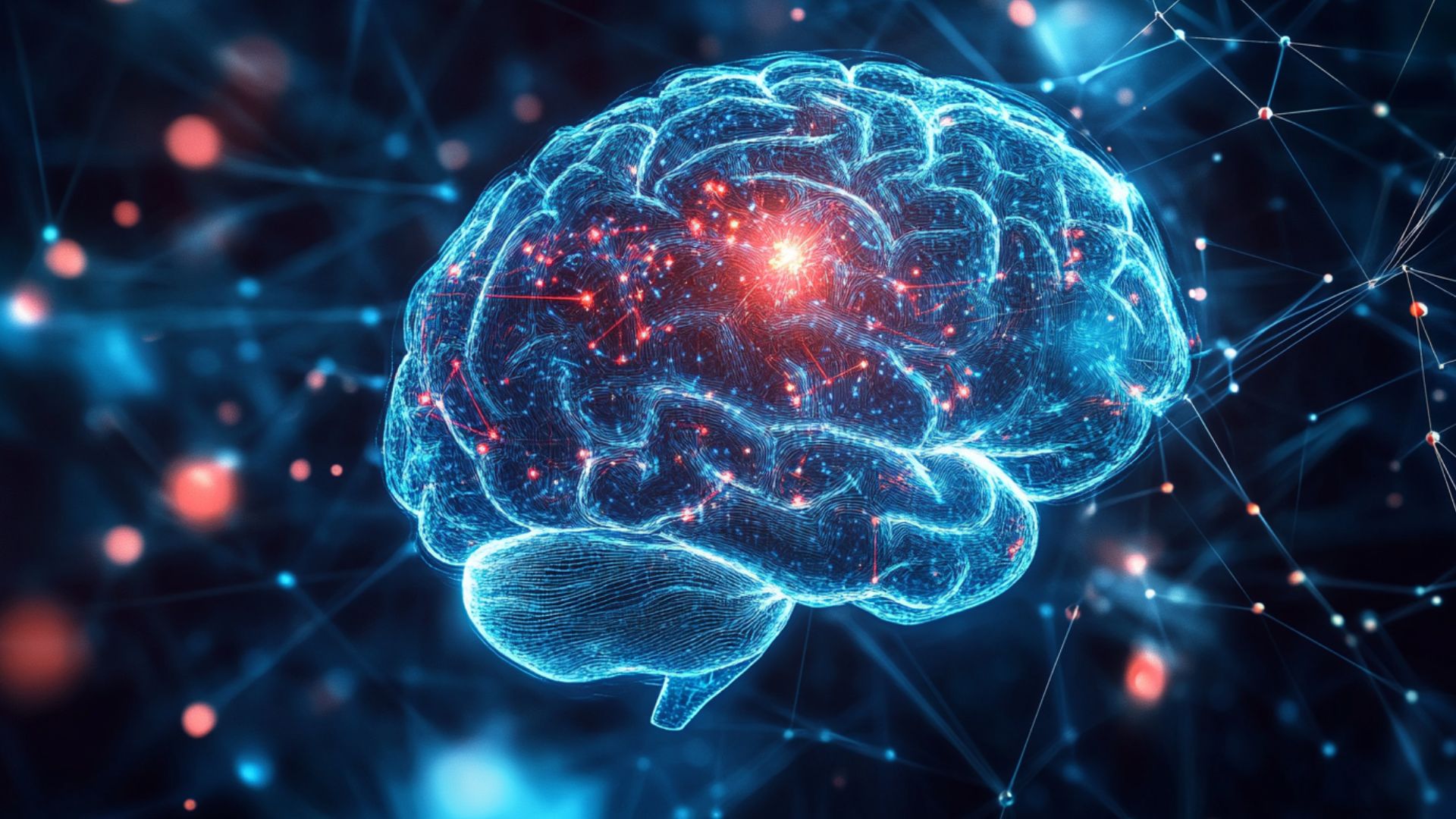Stress is a universal experience that we all encounter in our daily lives. From workplace deadlines to financial worries, stress manifests in countless forms. While a little pressure can sometimes serve as good motivation, chronic or long-term stress can have a profoundly negative impact on our bodies and minds.
Stress isn’t merely a feeling — it’s a physiological response that triggers a complex chain reaction within our nervous system. This intricate connection between our emotional state and physical well-being represents what we refer to as the mind-body connection. The brain is particularly vulnerable to the prolonged effects of stress.
When we feel overwhelmed, our bodies release a flood of chemicals and hormones designed for short-term survival. However, when this stress response remains constantly activated, it begins to wear down our neural pathways and cognitive abilities. Understanding the relationship between stress and brain function is crucial for managing our overall health, since the brain’s ability to process information, regulate emotions, and form memories is directly linked to our stress levels.
In this exploration, we’ll examine how stress affects our brain and nervous system, and discover what we can do about it.
How Stress Affects the Nervous System
The nervous system serves as the body’s primary communication network, consisting of two main components: the central nervous system (brain and spinal cord) and the peripheral nervous system (nerves extending throughout the body).
When you encounter a stressful situation, your brain’s alarm system — the amygdala — sends an urgent signal to the hypothalamus. The hypothalamus then activates the “fight or flight” response by signaling the adrenal glands to release a surge of hormones, most notably cortisol and adrenaline.
Adrenaline rapidly increases your heart rate and blood pressure while providing a quick burst of energy to either confront or escape a perceived threat. Cortisol, the primary stress hormone, increases blood sugar levels, enhances glucose utilization in the brain, and improves the availability of tissue-repair substances. This represents a highly effective, short-term survival mechanism.
However, problems arise when this system remains constantly on high alert. Long-term exposure to cortisol can significantly disrupt sleep cycles, weaken the immune system, and contribute to weight gain. This continuous activation demonstrates how stress affects the nervous system in more damaging ways over time.
The sustained release of stress hormones can lead to chronic stress, where the body remains in a heightened state of readiness, eventually exhausting the adrenal glands and reducing nervous system efficiency.
Neurological Effects of Stress
The neurological effects of stress extend far beyond the release of simple hormones. Chronic stress can actually alter the physical structure of your brain. The hippocampus, a region crucial for learning and memory, shows particular sensitivity to elevated cortisol levels. Prolonged exposure can lead to hippocampal shrinkage, making it significantly more difficult to form new memories and recall existing ones.
The prefrontal cortex, responsible for complex decision-making, attention, and impulse control, is equally vulnerable. High stress levels can reduce its connectivity and efficiency, making it difficult to focus and think clearly. This explains why you might find yourself making poor decisions or feeling mentally foggy when under significant pressure.
Furthermore, stress can increase both the size and activity of the amygdala, the brain’s primary fear center. This enlargement can lead to an amplified fear response and heightened anxiety, making a person more reactive to even minor stressors. This creates a vicious cycle: the more stressed you become, the more your amygdala grows and becomes sensitive, which in turn generates more stress. This exemplifies how stress transcends mental states to become a tangible, physical process that affects brain structure.
Stress and Memory Loss
One of the most noticeable effects of chronic stress is its impact on memory function. Have you ever walked into a room and forgotten why you went there, or struggled to remember details that were just shared with you? This is often a direct result of stress and memory loss.
When you’re stressed, elevated cortisol levels interfere with neuronal signaling in the hippocampus — the brain’s primary memory center. This disruption makes it harder for the brain to convert short-term memories into long-term storage, similar to trying to record a video on a device with insufficient memory space.
Consider the common scenario of studying for an exam while feeling completely overwhelmed. Your brain becomes so focused on the perceived threat (the upcoming exam) that it struggles to process and retain the actual study material. This explains why people under significant pressure often complain of “brain fog” — a genuine neurological phenomenon where stress hormones impair cognitive processing.
This memory disruption can also affect long-term recall, making it more difficult to retrieve information that you’ve previously learned and stored.
Stress and Brain Function
Chronic stress extends beyond temporary memory lapses to create permanent alterations in brain structure and performance. This represents fundamental changes in neural wiring, not merely occasional forgetfulness.
Elevated cortisol levels have been shown to reduce the volume of both the hippocampus and prefrontal cortex. The prefrontal cortex governs executive functions, including planning, reasoning, and problem-solving. A smaller, less efficient prefrontal cortex makes it incredibly difficult to manage daily tasks and regulate emotions effectively. This demonstrates how chronic stress and brain function are interconnected, leading to reduced mental effectiveness and resilience.
Chronic stress also causes a loss of synaptic connections — the junctions between nerve cells where information passes from one neuron to another. Over time, high cortisol levels can reduce the number of these critical connections, making brain communication less efficient and contributing to a decline in overall mental performance.
The brain’s neuroplasticity — its ability to change and adapt — suffers significant damage under chronic stress. This means the brain becomes less capable of learning new information or recovering from injury. Instead of remaining a flexible and adaptable organ, the chronically stressed brain becomes rigid and less capable of handling new challenges.
How Stress Impacts Mental Health
The connection between stress and mental health is undeniable. When the brain exists in a constant state of alert, it becomes more susceptible to various psychological conditions.
Anxiety represents one of the most common outcomes. The persistent “fight or flight” state keeps both body and mind on edge, making it difficult to relax or feel safe. This leads to persistent worry, restlessness, and inability to focus, all contributing significantly to heightened anxiety levels.
Chronic stress also serves as a major contributor to depression. Sustained cortisol release can deplete crucial neurotransmitters, such as serotonin and dopamine, which regulate mood and feelings of pleasure. When these chemicals become scarce, it can lead to profound sadness, hopelessness, and lack of motivation — this is a key part of how stress impacts mental health.
Additional stress-related mental health effects include:
- Emotional exhaustion. Feeling completely drained and unable to cope with daily responsibilities
- Irritability. Developing a short temper and becoming easily frustrated with others
- Social withdrawal. Avoiding friends and family due to lack of energy or interest
- Insomnia. Experiencing difficulty falling or staying asleep, leading to constant fatigue
- Panic attacks. Suffering sudden episodes of intense fear accompanied by physical symptoms like rapid heartbeat and shortness of breath
Conclusion and Coping Strategies
Understanding how stress affects the nervous system represents the crucial first step toward protecting your neurological health. The next step involves implementing proactive strategies to mitigate the effects of stress and promote overall well-being.
Here are evidence-based strategies you can use to manage stress and protect your neurological health:
- Mindfulness and Meditation. Just a few minutes daily can help calm your nervous system and reduce cortisol levels. These practices train your brain to stay present rather than constantly worrying about future events.
- Regular Physical Activity. Exercise ranks among the most powerful stress relievers available. It helps your body metabolize excess stress hormones while releasing endorphins — natural mood boosters that can significantly improve your mental state. Even a brisk walk can make a meaningful difference.
- Prioritize Quality Sleep. Adequate sleep is essential for brain repair and memory consolidation. Establish a consistent sleep schedule and a relaxing bedtime routine to ensure sufficient rest and optimal brain function.
- Maintain Social Connections. Social support provides a powerful buffer against stress. Spending time with loved ones releases oxytocin, a hormone that promotes feelings of calmness and well-being while helping to counteract the neurological effects of stress.
- Practice Healthy Nutrition. A balanced diet rich in fruits, vegetables, and lean proteins provides your brain with the essential nutrients it needs for optimal function and stress resilience.
By incorporating these evidence-based habits into your daily routine, you can effectively reduce stress levels and strengthen your brain’s resilience. Taking care of your mental well-being isn’t a luxury — it’s a necessity for maintaining a healthy and fulfilling life. Remember that small, consistent changes can lead to significant improvements in your neurological health and overall quality of life.











Please, leave your review
Write a comment: